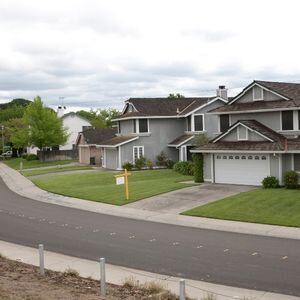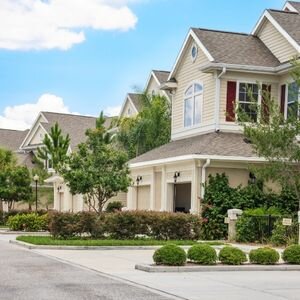
Understanding Property Vacancy Laws in Richmond, Va
Richmond, VA has put in place special policies around unoccupied properties to deal with the problems they cause. Property owners must understand these rules in order to follow them and avoid fines.
The Department of Planning and Development Review must be told about empty properties by their owners. This registration needs to have a lot of information on the property’s status and a plan for how to fix it up or keep it up.
Richmond’s ordinances mandate regular inspections to ensure that vacant properties remain secure, structurally sound, and free from hazards such as overgrown vegetation or debris accumulation. Additionally, the city enforces strict guidelines on maintaining exterior aesthetics to prevent neighborhood blight and uphold community standards.
Property owners are also responsible for keeping their windows and doors in good shape so that no one may get in without permission. If you don’t follow these rules, you might get fined or have a lien placed on your property. This is why it’s important for property owners in Richmond, VA, to stay up to date on any changes or modifications to local laws regulating property vacancy and maintenance.
Key Factors Affecting Home Vacancy in Richmond, Virginia
Richmond, Virginia, faces several key factors affecting home vacancy that intertwine with the city’s vacant property regulations and maintenance requirements. One primary factor is the local economic environment, which influences property demand and affects the ability of homeowners to maintain or sell their homes.
Richmond’s housing market dynamics, including supply and demand fluctuations and property values, also play a significant role in home vacancy rates. Additionally, zoning laws and land use policies shape how properties can be utilized or redeveloped, impacting their occupancy status.
Property taxes and municipal fees further influence homeowners’ decisions regarding selling or holding vacant properties. The effectiveness of city enforcement on vacant property maintenance regulations directly affects neighborhood aesthetics and livability, often determining whether properties remain vacant or attract new occupants.
Furthermore, community initiatives aimed at revitalizing neighborhoods can reduce vacancy rates by encouraging investment in neglected areas. Understanding these complex interactions helps stakeholders address the challenges of home vacancy in Richmond effectively.
How Long Can You Leave Your House Unoccupied in Richmond, Va?
Homeowners in Richmond, VA who want to leave their homes empty need to know the rules around vacant properties. The city has rules in place to keep vacant properties from becoming problems or safety issues.
Homeowners must register their property with the city if it will be vacant for more than 30 days, as part of Richmond’s efforts to maintain community standards and prevent urban blight. The registration process involves providing contact information and a maintenance plan to ensure that the property remains in good condition during the period of vacancy.
City officials check the property on a regular basis to make sure that upkeep rules are being followed. These rules include keeping the property clean, safe, and free of overgrown plants or structural problems. If you don’t follow these rules, the city may fine you or take other legal action.
By staying informed about these requirements, homeowners can avoid penalties and contribute positively to their neighborhoods even when their houses are unoccupied.
Legal Implications of Leaving a House Vacant in Richmond

In Richmond, Virginia, the legal implications of leaving a property vacant can be significant, as the city enforces strict regulations to ensure public safety and neighborhood aesthetics. Property owners must adhere to local ordinances which mandate that vacant homes are maintained to prevent blight and deterioration.
If you don’t follow these rules, you could get fined or taken to court. Owners must make sure that windows and doors are locked, lawns are kept up, and the outside of the building is safe.
The city may also impose penalties for unpaid property taxes associated with abandoned properties. Furthermore, Richmond has a registry for vacant properties which requires owners to register their unoccupied homes with the city to facilitate oversight and compliance.
This process aims to reduce risks such as vandalism, fire hazards, and pest infestations that often accompany neglected properties. Understanding these obligations is crucial for property owners in Richmond to avoid costly repercussions while contributing positively to community welfare.
Insurance Considerations for Vacant Homes in Richmond, Virginia
When dealing with vacant property regulations and maintenance in Richmond, Virginia, understanding the insurance considerations for vacant homes is crucial. Homeowners must be aware that standard homeowners insurance policies typically do not cover properties left unoccupied for extended periods.
Making sure you have enough empty home insurance in Richmond is important to protect yourself from risks like theft, vandalism, and damage from the weather. Property owners should talk to their insurance companies about choices like vacant home insurance policies or endorsements that cover the specific risks that come with properties that aren’t being lived in.
Additionally, maintaining regular inspections and upkeep of the property can help mitigate potential issues and may even influence insurance premiums favorably. In Richmond’s evolving real estate landscape, being proactive about securing proper coverage helps safeguard investments while complying with local regulations regarding vacant property maintenance.
Safety Tips for Maintaining a Vacant Property in Richmond
Maintaining a vacant property in Richmond, Virginia requires careful attention to safety and compliance with local regulations. Property owners should regularly inspect their vacant properties to ensure they remain secure and free from hazards.
Make sure all the doors and windows are locked and in good shape to keep people from getting in without permission. Putting in security systems like cameras or lights that turn on when motion is detected can help keep people from breaking in.
Owners also need to make sure the property is well-lit, especially at night, because this makes it far less likely that vandals or burglars will break in. It is important to keep the outside of the property in good shape. Long grass or mail that hasn’t been picked up might make it look like no one lives there and draw attention.
Owners should promptly address any maintenance issues like broken fences or damaged roofs to prevent further deterioration and comply with Richmond’s property standards. Additionally, ensuring that utilities like water and electricity are properly managed helps avoid potential safety hazards such as leaks or electrical issues.
By following these safety tips, property owners can keep their empty homes in good shape while reducing risks and following Richmond’s rules on vacant homes.
Economic Impact of Long-term Home Vacancy in Richmond, Va
Long-term home vacancy in Richmond, VA, has significant economic implications that affect the local community and economy. Vacant properties often lead to decreased property values in surrounding areas, harming neighborhood appeal and deterring potential investors.
When property prices go down, the city’s tax revenue goes down as well, which means there is less money available for public services like schools, roads, and emergency services. Also, empty houses can become crime and vandalism hotspots, which means that police have to be more present and resources have to be taken away from other neighborhoods.
It is very important to keep these properties in good shape. If they aren’t taken care of regularly, they will quickly fall apart, making repairs more expensive when they are eventually sold or rented out. This neglect not only costs the city money, but it also makes new businesses less likely to open in affected communities since people don’t trust them.
Because of this, it is important to know Richmond’s rules about maintaining empty properties in order to help the local economy grow and deal with these economic problems.
Strategies to Prevent Vandalism on Vacant Houses in Richmond, Virginia
Protecting vacant houses in Richmond, Virginia, from vandalism is crucial for maintaining property value and community safety. Implementing effective strategies can significantly reduce the risk of damage and unauthorized access.
One of the most important ways to prevent vandalism is to secure windows and doors with strong locks and reinforced obstacles. By warning neighbors of any suspicious activity, motion-sensor lights installed around the perimeter of the property improves visibility and deters criminal conduct.
Surveillance systems, such as security cameras, provide continuous monitoring and serve as a strong deterrent by capturing evidence of any criminal behavior. Regular maintenance, including lawn care and exterior repairs, presents an occupied appearance that can dissuade potential vandals from targeting the property.
Collaborating with local neighborhood watch programs enhances community vigilance and creates a network of residents committed to reporting unusual activities. Additionally, implementing Richmond’s vacant property regulations ensures compliance with city ordinances aimed at preventing neglect and subsequent vandalism.
Best Practices for Securing an Empty Home in Richmond, Va
In Richmond, VA, protecting an empty home means following the city’s rules on vacant property and using the best upkeep and safety methods. First, property owners should learn about Richmond’s specific rules for empty homes. These rules include the need to register the property and regular checks to make sure it meets safety standards.
Maintaining the exterior is crucial; keeping the lawn trimmed and ensuring that the property does not appear neglected can deter vandals or squatters. Installing robust locks on all doors and windows, as well as using security cameras or alarm systems, provides additional layers of protection.
Regularly checking on the property or hiring a local management service can help address any issues promptly. Adequate lighting around the perimeter also increases visibility and reduces potential risks of unauthorized access.
Owners can successfully protect their vacant homes within Richmond’s regulatory framework by implementing these techniques.
Understanding the Real Estate Market Trends for Vacant Properties in Richmond
Understanding the real estate market trends for vacant properties in Richmond, VA involves examining various factors that impact property values and investment opportunities. The Richmond area has seen fluctuations in demand due to economic shifts, population growth, and urban development initiatives.
These patterns are mostly shaped by important laws controlling empty properties, which have an impact on possible resale value and maintenance needs. To properly manage their unoccupied properties, real estate investors must understand zoning regulations, tax incentives, and compliance requirements established by local government entities.
Additionally, understanding neighborhood dynamics, such as crime rates and school district performance, is essential for assessing market potential. As redevelopment projects increase in Richmond’s downtown areas, vacant properties present unique opportunities for revitalization efforts aimed at enhancing community appeal and boosting economic growth.
Managing Utilities and Maintenance for a Vacant House
Taking proactive steps to keep the property in good shape and managing utilities and upkeep for a vacant house require a deep comprehension of local laws. Richmond’s utility management regulations, which include preserving basic utilities like water and electricity to guard against damage from severe weather, must be understood by property owners.
To find any maintenance problems like leaks or structural damage early on, routine inspections are essential. If maintaining a vacant property becomes too burdensome, selling to a cash for houses company in Arlington can provide a quick and efficient solution to avoid ongoing upkeep and compliance issues.
It’s advisable for owners to winterize plumbing systems during colder months to prevent freezing pipes, while ensuring that security systems are operational can deter vandalism or unauthorized entry. Additionally, hiring local property management services can provide peace of mind by overseeing routine maintenance tasks and ensuring compliance with city ordinances related to vacant properties.
How Neighborhoods Are Affected by Long-term Vacancies in Richmond, Va

In Richmond, Virginia, long-term vacancies have a major effect on communities by lowering property prices and causing urban blight. Unoccupied houses sometimes turn into eyesores, drawing unlawful dumping and vandalism, which can raise crime rates.
This decline in neighborhood safety makes the area less desirable for potential homebuyers and investors, further exacerbating the cycle of neglect. Additionally, vacant properties in Richmond can strain city resources as they require regular monitoring and maintenance to ensure compliance with local regulations. Working with a company that buys homes in Alexandria can provide a swift solution, helping to revitalize the community while relieving homeowners of vacant property burdens.
The presence of unoccupied buildings also affects community cohesion, as fewer residents mean reduced engagement in local activities and diminished support for neighborhood initiatives. Over time, these factors contribute to a sense of decline and disinvestment in affected areas, making it challenging for Richmond communities to thrive without strategic interventions to address long-standing vacancies.
Seasonal Considerations for Leaving a House Empty in Richmond, Virginia
When you leave a house empty in Richmond, Virginia, you need to think about how the seasons may affect property care and following local rules. In the winter, freezing temperatures can damage plumbing systems. To avoid expensive water damage from burst pipes, it’s important to adequately insulate pipes and keep heating levels low.
In the spring and summer, overgrown lawns and unchecked vegetation can quickly lead to violations of Richmond’s property maintenance codes, which require regular upkeep of exterior areas to avoid fines. Fall presents its own challenges as leaves accumulate in gutters and on roofs, potentially causing blockages or damage if not regularly cleared.
Additionally, since abandoned buildings might be targets for criminal activity, it is crucial to make sure that all doors and windows are properly locked throughout the year to avoid unwanted entrance or vandalism. Additionally, property owners need to be aware of local legislation regarding the look of abandonment; maintaining compliance with Richmond’s abandoned property restrictions is facilitated by quick replies to any notices from city officials and regular inspections.
Exploring Short-term Rental Options to Avoid Vacancy Issues in Richmond
In Richmond, VA, navigating vacant property regulations can be complex, but exploring short-term rental options offers a viable solution to avoid prolonged vacancy issues. By understanding local ordinances and zoning laws surrounding short-term rentals, property owners can transform vacant properties into profitable ventures.
The city promotes responsible renting by making hosts get the right permits and follow maintenance rules that protect people and the neighborhood. Using sites like Airbnb and VRBO can help property owners make money from tourists while keeping their homes rented.
This proactive approach not only generates income but also mitigates the risks associated with long-term vacancies, such as deterioration and vandalism. Property owners must stay informed about specific requirements for insurance coverage and tax implications to fully benefit from this strategy while maintaining compliance with Richmond’s regulatory framework.
Tax Implications of Owning a Vacant Property in Richmond, Va
Owning a vacant property in Richmond, VA comes with specific tax implications that property owners need to understand thoroughly. The City of Richmond imposes real estate taxes on all properties, including those that are vacant.
If you don’t keep up with local rules, you may have to pay extra fines or higher taxes on empty properties. To avoid fines that might greatly raise their costs, property owners must make sure that their buildings follow the city’s maintenance requirements.
Additionally, the city has implemented programs aimed at reducing the number of neglected vacant properties by encouraging redevelopment and occupancy through various incentives and tax abatements. Understanding these nuances can help property owners manage their expenses effectively while navigating the complexities associated with owning a vacant property in Richmond.
Properly managing a vacant property and adhering to all relevant regulations can mitigate potential tax liabilities and contribute positively to neighborhood revitalization efforts.
The Role of Property Management Services for Vacant Homes in Richmond
Property management services play a crucial role in navigating the complex landscape of vacant property regulations and maintenance in Richmond, VA. These services ensure that vacant homes comply with local ordinances, which include regular inspections, timely maintenance, and adherence to safety standards.
Property managers are knowledgeable about Richmond’s unique standards for unoccupied property maintenance, including locking doors and windows, controlling vegetation to avoid overcrowding, and making sure that homes don’t turn into havens for vandals or vermin. Property management services assist homeowners in avoiding the penalties and legal problems that come with non-compliance by efficiently handling these factors.
Additionally, they can facilitate communication with city officials regarding any changes in regulations or necessary permits. Their expertise allows for prompt action on maintenance tasks like winterizing plumbing systems or addressing structural repairs, ultimately preserving property value.
In a place like Richmond where there are strict rules about empty properties, hiring a professional property manager makes sure that residences are safe and well-kept while following all city rules. Cash For Houses Girl can help by connecting you with trusted property management experts to maintain compliance and protect your investment efficiently.
Preparing Your Home for Extended Absence: a Guide for Residents of Richmond
When preparing your home for an extended absence in Richmond, VA, it’s crucial to understand the local vacant property regulations and maintenance requirements to avoid potential fines or legal issues. Richmond’s ordinances mandate that vacant properties be maintained to prevent blight and ensure neighborhood safety.
This means that people must keep their houses safe by locking all doors and windows, keeping the outside looking nice by mowing their lawns often, and making sure that mail doesn’t pile up in plain sight. Also, if possible, let the local authorities know about your long-term leave. This will help them keep an eye on the property for any strange activity.
Additionally, setting up a reliable system for monitoring the property remotely can be beneficial; this might include installing security cameras or hiring a local company to check on the premises periodically. Understanding these guidelines will help maintain both compliance and peace of mind during your time away from Richmond.
Community Resources and Support for Owners of Empty Homes in Richmond

In Richmond, Virginia, owners of vacant properties can access a range of community resources and support to help them navigate local regulations and maintain their homes. The city offers guidance on compliance with vacant property ordinances, ensuring that homeowners understand their responsibilities regarding safety standards and upkeep.
Local groups help by putting property owners in touch with services like lawn care, security, and little repairs to keep the property from getting worse. The Richmond Department of Planning and Development Review is a great place to learn about zoning rules and get the permits you need.
In addition, neighborhood groups often help property owners a great deal by making it easier for residents to talk to local government officials. These groups may also put together events to clean up the neighborhood or workshops to teach people how to be good property managers.
By utilizing these resources, owners of empty homes can effectively manage their properties while contributing positively to the community’s overall appearance and safety. Cash For Houses Girl can assist you with expert guidance and solutions to ensure your vacant property remains secure, compliant, and market-ready.
What Is the Code 27 218 in Richmond Va?
In Richmond, VA, the code 27-218 plays a critical role in understanding vacant property regulations and maintenance requirements. This specific section of the Richmond City Code addresses the responsibilities of property owners in maintaining their vacant properties to prevent them from becoming nuisances or hazards within the community.
Under code 27-218, property owners are required to ensure that their vacant properties are secure, structurally sound, and free of overgrown vegetation or debris. The regulation mandates regular inspections and upkeep to avoid violations that could lead to fines or legal action.
Understanding code 27-218 is essential for property owners in Richmond as it outlines the standards for maintaining vacant properties in good condition, thereby contributing to neighborhood safety and aesthetic appeal. Compliance with this code ensures that vacant properties do not negatively impact surrounding areas or decrease property values.
For those navigating Richmond’s real estate landscape, being well-versed in code 27-218 is crucial for effective property management and adherence to local regulations.
What Is the Move Out Law in Virginia?
In Richmond, Virginia, understanding the move-out law is essential for both tenants and property owners, particularly when dealing with vacant properties. The move-out law in Virginia requires tenants to provide a written notice of their intent to vacate the premises.
Typically, this notice must be given 30 days in advance for month-to-month leases, although lease agreements may stipulate different terms. Compliance with these regulations helps ensure a smooth transition and aids in maintaining properties according to local codes.
For property owners, adhering to these laws minimizes vacancy periods and facilitates timely property maintenance, which is crucial in preventing code violations associated with vacant properties. Proper understanding of the move-out process also supports effective communication between landlords and tenants, ensuring that security deposits are handled appropriately and any necessary repairs or cleaning are completed prior to listing the property as vacant.
Familiarity with Richmond’s regulations on vacant properties further aids in strategic planning for potential renovations or occupancy changes while aligning with city ordinances regarding safety and upkeep standards.
Helpful Richmond Blog Articles
- Richmond, VA, Vacant Property Regulations And Maintenance
- Sale Of Inherited House With Multiple Owners In Richmond, VA
- Sell Your Richmond House With An Existing Mortgage
- Sell A House With A Lien In Richmond, VA
- Selling A Foreclosure Home In Richmond, VA
- Selling Your Parents’ Home To Pay for Senior Care in Richmond, VA
- Who Pays Closing Costs When Selling A Home In Richmond, VA
- Can You Back Out Of A Real Estate Contract in Richmond, VA
- Delinquent HOA Dues In Richmond, VA
- Sell Your Repair-Needed Home In Richmond, VA
- Selling A Richmond, VA, Home With Foundation Problems
- Do You Need a Lawyer to Sell Your House in Richmond, VA?
- Richmond, VA, Cost of Living

| NOTICE TO QUIT | LANDLORD AND TENANT | LANDLORD-TENANT LAWS | RENTAL PROPERTY | SUBLETTING | DWELLING |
| INVESTING | EVERNEST | TURBOTENANT | SUDAN | STESSA | SOFTWARE |
| INVESTMENT PROPERTY | REAL ESTATE INVESTING | HOMEOWNERS ASSOCIATION | DOORLOOP | CUSTOMER SERVICE | CUSTOMER |
| CODE OF VIRGINIA |
